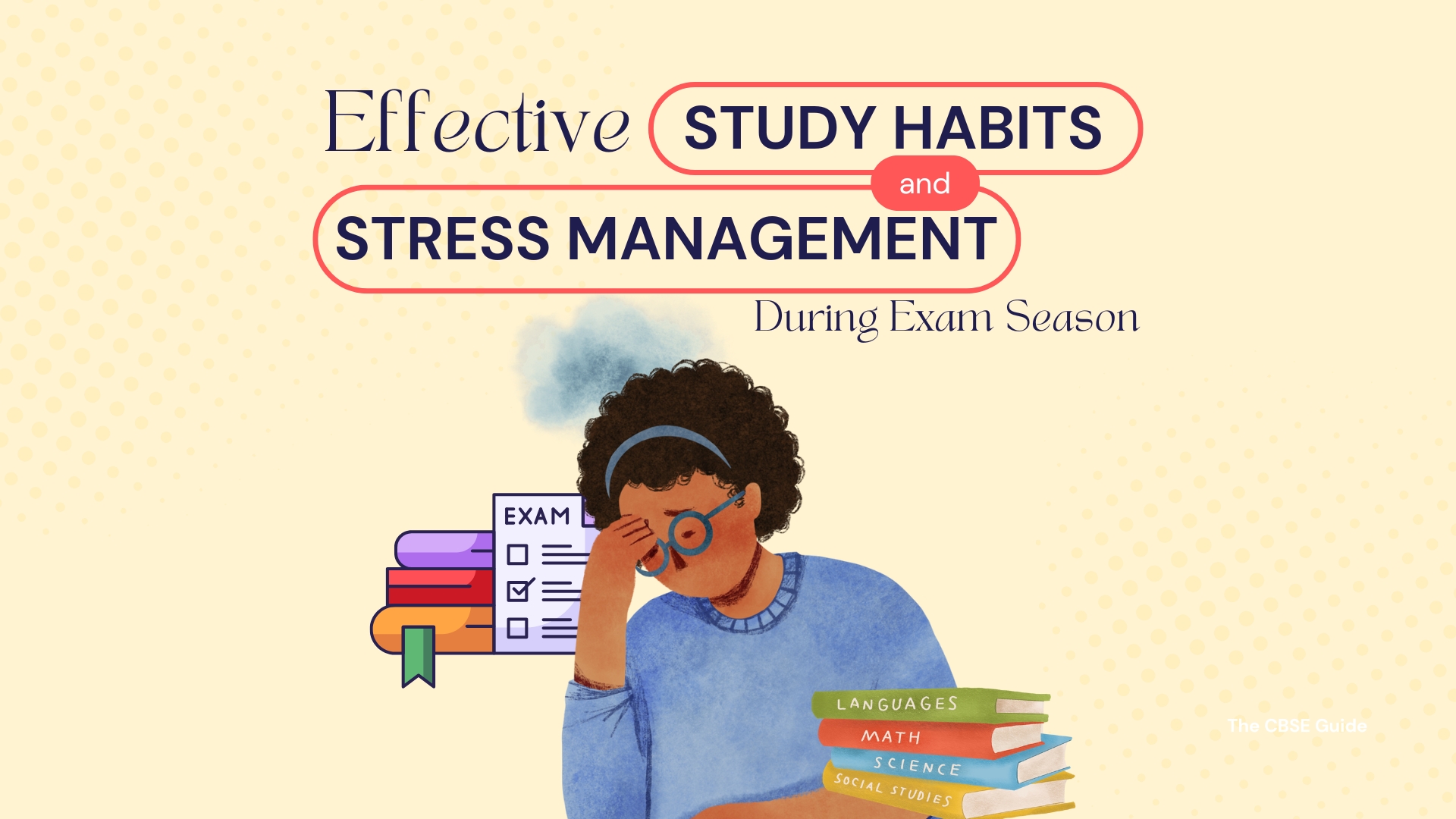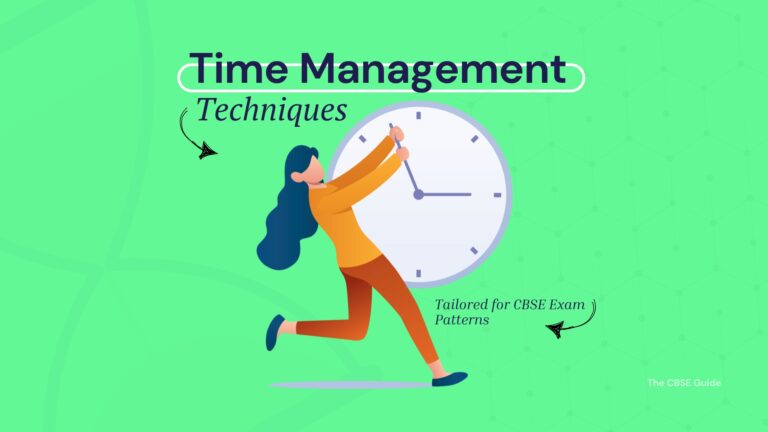Exams can be stressful, but with the right study habits and stress management techniques, students can improve their focus, retention, and performance. CBSE students often face pressure due to vast syllabi and high expectations, making it essential to study smart rather than just studying hard.
In this guide, we’ll cover effective study habits and stress management tips to help you prepare better and stay calm during exams.
1. Develop a Smart Study Plan
A well-structured study plan can boost productivity and reduce last-minute cramming.
📌How to Create an Effective Study Schedule:
- Prioritize Subjects & Topics: Focus more on subjects or topics that carry high weightage in the exam.
- Set Realistic Goals: Break your syllabus into daily and weekly targets.
- Use the Pomodoro Technique: Study for 25-50 minutes, then take a 5-10 minute break to refresh your mind.
- Revise Regularly: Dedicate one day per week to revision instead of learning new topics.
👉 Pro Tip: Allocate more time to challenging subjects while ensuring you revise easier topics frequently.
2. Practice Active Learning Methods
Simply reading textbooks is not enough; active engagement enhances retention and understanding.
📌 Best Active Learning Techniques:
- Take Notes Effectively: Use the Cornell Method (divide your notes into main ideas, details, and a summary).
- Teach Others: Explaining concepts to a friend reinforces learning.
- Use Flashcards & Mind Maps: They help in quick revisions and visualizing complex topics.
- Solve Previous Year Papers: Get familiar with the exam format and manage time better.
👉 Bonus Tip: Write down key points in your own words rather than memorizing textbook definitions.
3. Manage Exam Stress with These Techniques
Excessive stress can affect concentration and memory. Managing stress effectively can improve both mental well-being and performance.
📌 How to Reduce Exam Stress:
- Deep Breathing & Meditation: Spend 5-10 minutes daily on mindfulness exercises.
- Regular Exercise: A 30-minute walk, yoga, or stretching can reduce anxiety.
- Get Enough Sleep: Aim for 7-8 hours of sleep to boost memory retention.
- Stay Hydrated & Eat Right: Include brain-boosting foods like nuts, fruits, and leafy greens in your diet.
👉 Quick Fix: If you feel anxious before an exam, take 10 deep breaths and remind yourself of your preparation.
4. Time Management Strategies for Exam Preparation
Time management plays a crucial role in completing the syllabus and avoiding last-minute panic.
📌Best Time Management Tips:
- Follow the 80/20 Rule: Spend 80% of your time on high-weightage topics and 20% on lesser important ones.
- Use a Timer: Set time limits for each subject to improve efficiency.
- Practice Time-Based Mock Tests: Simulating exam conditions can improve speed and accuracy.
👉 Exam Day Tip: Start with the easiest questions first to build confidence and manage time better.
5. Stay Away from Distractions
With smartphones, social media, and notifications, staying focused can be challenging.
📌How to Avoid Distractions While Studying:
- Use Study Apps: Apps like Forest and StayFocusd block distracting websites.
- Create a Study Zone: A quiet, clutter-free environment improves concentration.
- Follow the 5-Minute Rule: If you get distracted, write it down and address it later.
👉 Quick Fix: Turn off notifications and put your phone in another room while studying.
6. Self-Motivation & Positive Mindset
Your mindset can make a significant difference in your performance.
📌Ways to Stay Motivated During Exams:
- Visualize Success: Imagine yourself writing the exam confidently.
- Reward Yourself: Give small rewards after completing study goals.
- Avoid Negative Self-Talk: Replace “I can’t do this” with “I’ll give my best.”
👉 Golden Rule: Focus on progress, not perfection. Small daily efforts lead to big results.
Final Thoughts
By incorporating these effective study habits and stress management techniques, you can make your exam preparation more productive and stress-free.
Key Takeaways:
- Plan your study schedule smartly
- Engage in active learning techniques
- Manage exam stress through mindfulness & healthy habits
- Use time management strategies for better efficiency
- Stay motivated and avoid distractions
Implement these strategies, and you’ll notice a significant improvement in your focus, retention, and overall performance.

